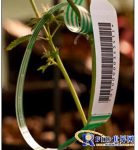
Colorado to use UHF RFID technology to regulate marijuana
[ad_1]
The Colorado state government requires growers, processors and retailers of medical or recreational marijuana to use EPC Gen 2 compliant passiveRFIDlabel to verify the validity of the plant or product.
Colorado is expected to open hundreds of recreational marijuana stores. Once the stores open, they will be tracked with RFID tags attached to each package of sprouts, processed hemp products (such as marijuana-infused brownies) and other products. The purpose of RFID tag tracking is to assist state governments in regulating cannabis products and ensuring the regularity of their origin.

As early as July 2011, the Colorado State Department of Revenue stipulated that the entire supply chain process of medical marijuana, such as the status and location of potted plants and products, needs to be recorded. At the same time, government authorities have indicated that EPC Gen 2 passive RFID tags can be used to identify products or plants. The above rules stem from the Cannabis Inventory Tracking Solution (MITS), a system the tax administration plans to use to track cannabis as it is grown in greenhouses through the pharmacy retail process. The software system of the tracking management solution based on UHF RFID technology was developed by a company called Franwell in Florida.
Cannabis Inventory Tracking Software (MITS) is installed in the Colorado database to track cannabis plants or packages. In order to monitor the composition of each plant or cannabis product, as well as its origin and other information, EPC Gen 2 UHF RFID tag technology is used for tracking management. This label is provided by Franwell Corporation. Cannabis growers must purchase UHF tags (tags come in a variety of forms, including hang tags or stickers) and attach them to plants or finished cannabis packaging.
The cannabis inventory tracking solution, which includes the software platform and reader, will cost approximately $1.6 million. The state government uses this program to regulate prohibited products and prevent the disappearance of potted cannabis. In addition, government authorities ensure the reliability of the source of retail cannabis products through this program.
In 2010 the Cannabis Stock Tracking Solution (MITS) has been developed to better manage the cultivation, processing and sale of cannabis. Implementation of the solution has been hampered by shrinking financial resources. Last year, through a vote resolution, the project was launched again.
Colorado requires marijuana growers to purchase RFID tags and log into the Marijuana Inventory Tracking Software (MITS) system to update the status of the plant in real time. (Among them, the sales volume of cannabis cannot be higher than 1 pound, about 0.91 kilograms.) Currently, there are about 500 registered cannabis retailers, 126 distributors and 700 growers.
Cannabis is generally propagated by cuttings. Newly cultivated plants are assigned a unique 24-digit coded RFID tag with a serial number printed on the surface of the tag. The grower reads the ID code of the tag and stores the information into the MITS system. When it comes to cannabis harvest, growers will remove the RFID tags. After the buds are processed, the process of transporting them to the retailer also requires the installation of RFID tags and printed labels with text descriptions, which include the origin of the plants and more other information. The new tag ID is stored in the MITS system database and is associated with the product’s historical information, including information such as which plant the bud came from.
Growers plan to install fixed RFID readers at the entrances and exits of different processing rooms in the processing plant so that regulators can see the stages of processing.
Growers pack the leaves and other add-ons into the finished product and affix RFID tags to the packaging before shipping to the processing plant. All hemp products must be tested for contamination and pesticide content. Workers who process and inspect products need to log in to the MITS system and update the corresponding historical records according to the ID code.
After the finished product is processed, it is shipped to retailers for sale. The regulatory authorities can inspect cannabis products through handheld readers, and can view the historical information of their products to ensure that the products meet the corresponding inspection standards. Plan to use Motorola MC9090 handheld reader.
Labels are often discarded after products are sold, so RFID labels have certain security problems. Currently, labels to track plants cost 45 cents, and labels to track the packaging process cost 25 cents.
[ad_2]



